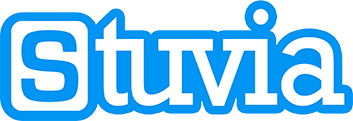Almost all students experience it at some point in time: procrastination. You've been putting off learning vocabulary for your test or exam for weeks. So now you have to cram everything into your head at the last minute. But don't worry! We have several tools to help you learn vocabulary in no time. In Stuvia's ‘Study Smartly Step-by-step Plan’, we show you the best way to learn vocabulary.
What is the best way to learn vocabulary?
Everyone learns differently. But what is the best way to learn vocabulary? There are several methods you can use to learn vocabulary. In Stuvia's ‘Study Smartly Step-by-step Plan’ we have listed five steps for you to learn vocabulary in no time.
It can help to divide the learning material into smaller parts beforehand. This is also known as the Salami technique. It makes the learning process easier and allows you to plan more easily. Curious about the five steps? Please read on.
Practicing vocabulary: Stuvia's ‘Study Smartly Step-by-step Plan’
Learning new words is necessary for competitive exams like the GRE, where there is an entire section dedicated to vocabulary. But it's not always easy to get started. Practicing and memorizing vocabulary can be done using the following five steps, which come together in Stuvia's ‘Study Smartly Step-by-step Plan’.
1. Come up with a mnemonics
2. Learn with variation
3. Create flashcards
4. Read aloud
5. Take plenty of breaks
Come up with mnemonics
If you have problems remembering a specific word, it could be useful to come up with a mnemonic. A mnemonic is a memory aid that helps you to remember something, such as words that are difficult to remember. Mnemonics can be in the form of a phrase, acronym, rhyme, or images, and they use associations between easy-to-remember constructs and the difficult-to-remember information. One example of this technique is “Roy G. Biv” for the colors of the rainbow (red, orange, yellow, green, blue, indigo, violet). Another is an association you could make to remember the word ‘arcane’, which means secret or obscure knowledge. Arcane sounds like arrrr + cane, which you could remember as being ‘a pirate with a cane and a secret message’.
Learn with variation
Always make sure your learning session is diverse. So never learn the words in exactly the same order. In addition, it is advisable to learn the vocabulary both ways. So if you need to learn the word 'Computer' in French, you should also know that the French word 'L'ordinateur' means the word 'Computer'. And remember: practice makes perfect.
Create flashcards
Did you know that you can very easily create flashcards yourself with our review tool? Flashcards are study cards with the word on one side and the translation or meaning on the other. Using our tool, you can easily create flashcards online yourself.
Read aloud
Did you know that you remember words better when you read them aloud? This has to do with the fact that your two brain halves have to work together when reading and reading aloud. This cooperation makes you remember it even better. However, it is advisable not to apply this tip in a crowded reading room or library ;).
Take plenty of breaks
As smart as it may seem to study for hours on end, studying smartly starts with taking sufficient breaks (and rests). So a useful technique for practising vocabulary is the Pomodoro technique, where you divide your learning sessions into 25 minutes followed by a 5-minute break.
Sell your flashcards
Did you know that you can easily link the flashcards you create on our website to other study documents and sell them. So don't wait any longer and start creating flashcards!
